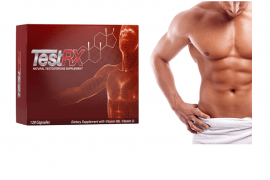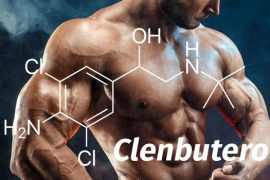Protein is crucial for muscle growth and repair.
Because of this, a lot of people consume protein nutritional supplements in the shape of shakes along with their workouts.
However, the optimal time to have a protein shake is a hotly debated subject.
Some think it is best to drink a protein shake before a workout, whereas others argue that following a workout is ideal.
This report clarifies whether it is ideal to get a protein shake before or after your workout.

People Who Exercise Want More Protein
The Recommended Daily Allowance (RDA) for protein is 0.36 grams per pound (0.8 g/kg) of body weight.
The RDA is the estimated amount of a nutrient, an individual must avoid a deficiency. It doesn’t specify the amount required to optimize body composition or wellbeing.
For protein, it is apparent that the RDA is much too low to support muscle recovery and development.
In reality, research suggests that individuals who routinely strength train may require double the RDA, or 0.72 g per pound (1.6 g/kg), to support muscle recovery and expansion.
For a person weighing 150 lbs (68 kg), this equals 109 g of protein every day.
To optimize your results, disperse this amount over three to four meals which are consumed every three to four hours.
A protein shake is a fantastic option between foods, either as a snack or throughout your workout. They typically contain 25–30 grams of protein per scoop.
SUMMARY
Individuals who exercise frequently need more protein to support muscle recovery and growth. Consume your protein at equally spaced times every day.
Can the “Anabolic Window” Matter?
A lot of men and women believe drinking a protein shake within 30 minutes of exercise can maximize their outcomes at the fitness center.
This 30-minute window, commonly called the”anabolic window,” is a short time period in which your muscles are like a sponge.
The thought is that in case you consume protein outside the anabolic window, then your body won’t effectively utilize it or build muscle.
Research suggests that this anabolic window of chance is a lot more than 30 minutes and might not be limited to the following workout.
In reality, perhaps it doesn’t matter if you drink a protein shake before or after your workout concerning optimizing muscle growth and repair.
SUMMARY
It was formerly believed that protein needed to be absorbed within 30 minutes of a workout for your body to use it. Recent research indicates that this may not be the case.
Protein Shake Pre- vs Post-Workout
So far, only one study has compared the effects of consuming protein before or after a work out on muscle strength and size.
The researchers divide 21 guys into two groups, each of which obtained a protein shake containing 25 g of protein. 1 group received it instantly prior to their work out, while another group received it immediately after.
Everyone completed a whole-body workout three times per week for 10 weeks.
Interestingly, the analysis found no substantial differences in muscle size or strength between the groups. These results suggest that as long as you have protein around your workout, it is irrelevant whether it’s before or after training.
Therefore, you may pick which time you prefer or is most convenient for you.
SUMMARY
Whether you drink a protein shake before or after your workout might not have an effect on muscle size or strength.
Daily Protein Intake May Be More Important
The research on whether protein consumption throughout your workouts is essential for maximizing gains is mixed.
Some study has questioned whether swallowing protein around your workout is even necessary.
A couple of studies suggest it’s beneficial, though other research indicates no impact.
These conflicting results led investigators to analyze the findings of 23 research on the effects of absorbing protein around exercise.
They discovered that total protein intake was the strongest predictor of muscle strength and size, regardless of whether people consumed it close for their workout or not.
Therefore, just how much protein you consume daily is probably more important than when you eat it to gaining muscle size and strength.
SUMMARY
The total quantity of protein you consume each day is much more important for muscle growth and strength compared to the time when you consume it.
How to Fulfill Your Protein Target
Both animal- and – plant-based foods contain protein and can help you fulfill your daily protein goal.
Meat, poultry, fish and milk are high-quality animal sources of protein. Meanwhile, nuts, beans, legumes and soy are good sources of protein that are fermented.
Research suggests that animal-based protein is superior to plant-based protein for building muscle, but it’s beneficial to consume a mixture of both.
Protein shakes are also a convenient way to boost your protein intake, especially when you cannot get sufficient through food alone.
The most Frequent types of protein powders on the marketplace include:
- Whey protein: Whey protein is a milk protein that’s quickly absorbed by the body, making it useful before or after your work out. It also includes bioactive proteins that may provide other health advantages (23Trusted Source).
- Casein protein: Casein is the other milk protein that digests much slower than whey, which makes it perfect during periods of fasting like sleeping. What’s more, some brands of casein protein offer up to 60% of your RDA for calcium per spoonful.
- Egg protein: Egg protein powders are made out of pure egg white protein. They digest at a medium rate and are among the most expensive protein supplements on the market.
- Soy protein: Soy protein is one of the very few plant proteins which includes all of the essential amino acids, which makes it a complete protein source for vegetarians.
- Rice and pea protein: Rice and pea proteins do not contain all the essential amino acids, but blending them makes them a complete protein. They’re low-allergenic, making them attractive to people with egg, dairy or soy allergies.
SUMMARY
Both plant and animal products are good sources of protein. Protein shakes may also help you get to your daily protein target.
High-Protein Diets Are Safe for Most People
Healthy men and women are able to safely drink protein shakes.
That said, shakes are not designed to replace foods. It is best to use them between meals and, if you prefer, around your own workouts.
A lot of men and women fear that taking supplements in conjunction with a low-carb diet can damage their health.
That is because high-protein diets have been erroneously associated with kidney disease and osteoporosis, a disease characterized by weak and brittle bones.
However, there’s no evidence to indicate a high-protein diet causes harm in people with healthy kidneys.
Even those who consistently consume high-protein diets, such as weightlifters, have healthy kidneys.
On the contrary, a high-protein diet is associated with enhanced bone health. This might be because protein increases bone mineral density and reduces the risk of bone fractures, particularly when coupled with strength training.
Therefore, unless your physician or registered dietitian teaches you to restrict your protein intake due to a health condition, there’s no need to worry about a high-protein diet.
SUMMARY
You can use protein shakes in between meals to boost your protein intake. The majority of healthy people are able to safely follow a high-protein diet.
The Most Important Thing
Protein plays an important role in repairing and rebuilding your muscles following exercise, and several people use protein shakes after their workouts to help this process.
However, research indicates that it doesn’t matter whether you consume a protein shake before or after your workout. Interestingly, your total daily protein consumption is what matters most.
While protein shakes about workouts and between meals are useful, be sure that you’re getting enough through the day. Both foods and supplements can help you meet your objectives.
For healthy men and women, there are no health risks related to utilizing protein shakes while still adhering to a high-protein diet.
In fact, consuming more protein than the current RDA has several health advantages.






Comments are closed.